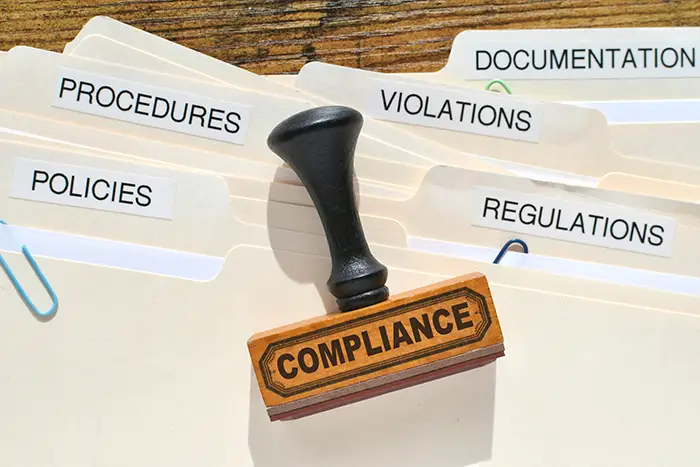Homeowners associations exist to help protect property values and maintain an excellent quality of life in a community. But with shared rules come occasional HOA violations, the real challenge is how your board handles them.
Know the Rules Before You Enforce Them
Before enforcing any HOA violation, board members need to be familiar with the rules. Everything starts with your community’s governing documents.
These documents spell out what’s expected of residents and what counts as a violation. Florida’s HOAs also have to follow Chapter 720 of the Florida Statutes, which outlines how violations should be handled legally.
It’s also a good idea to review and update your rules now and then. Outdated or unclear rules can lead to misunderstandings or, in the worst cases, legal headaches.
How to Manage HOA Violations Properly
Managing HOA violations can be challenging at times. While you know what rules to enforce, you may find it hard to balance being fair, firm, or being too lenient in your decisions. Not quite sure if you’re enforcing rules the right way? Here are some steps that you can follow:
1. Spotting HOA Violations
Most homeowners association violations come to light through either resident reports or routine inspections. Some of the more common HOA violations include:
- Parking in restricted areas
- Not keeping up with landscaping
- Making exterior changes without approval
- Excessive noise
- Running a business from home
When a potential violation is spotted, it’s important to stay neutral and fair. Take the time to document the issue and verify that it violates your rules. For minor infractions, some boards opt to begin with a friendly reminder before issuing a formal notice.
2. Send a Clear Notice for HOA Violations
If a rule is broken and it’s time to take action, the next step is to send an HOA violation notice. Florida law outlines specific guidelines for this process, and boards must follow them closely.
A proper notice should include:
- What the violation is
- Which rule does it violate
- When it was observed
- How long tdoes he homeowner have to fix it
- How can they respond or ask questions
- Contact information for the board or management
In Florida, most HOAs must give at least 14 days’ notice before imposing a fine or taking further action. The notice should be sent via mail or hand-delivered to the homeowner’s address on file.
Make sure the tone is respectful and transparent. A well-worded notice helps avoid confusion and shows homeowners that the board is being fair and professional.
3. Offer a Hearing Before Fines

Florida law also requires that, before any fines or suspensions are enforced, homeowners must be given a chance to speak at a hearing. This hearing is held before an independent committee of non-board members who aren’t related to the board in any way.
Homeowners must be given at least 14 days’ written notice of the hearing. It’s their opportunity to:
- Explain their side
- Share any relevant info or context
- Ask for more time to comply
This is an essential aspect of ensuring fair enforcement. If the committee doesn’t approve the fine or suspension, the board can’t go forward with it.
4. Follow Through with Fines or Other Actions
If the violation isn’t corrected and the hearing committee signs off, the board can move forward with enforcement. In many cases, that means HOA violation fines, which Florida law limits to $100 per violation or a total of $1,000 for ongoing issues.
However, keep in mind that these fines can’t be turned into a lien on the property. That only applies to unpaid assessments.
Beyond fines, the board may also suspend access to shared amenities and voting rights in elections. They may also pursue mediation or legal action if the issue continues.
Florida strongly encourages HOAs to use mediation or arbitration first before heading to court. Legal battles can drain time and money for both the board and the homeowner.
5. Keep Good Records and Stay Transparent
Everything related to a HOA violation should be well documented. You should always save different types of records that can help in decision-making. You can save things like:
- Photos or inspection notes
- Copies of the violation notice
- Delivery receipts
- Hearing details
- Final decisions and fines
Having everything on file protects the board and ensures a clear record of how the issue was handled.
Transparency matters too. Make your enforcement process easy for residents to understand and follow. Post the procedures online, talk about them in meetings, and include reminders in newsletters. When residents know what to expect, they’re more likely to comply.
Mistakes to Avoid When Enforcing HOA Violations
Even well-meaning boards can make missteps. Here are a few to watch out for:
- Being inconsistent – Enforcing rules for some residents and not others can lead to serious complaints or lawsuits.
- Not keeping records – If you can’t prove what happened, enforcement becomes difficult.
- Poor communication – Harsh or unclear notices can create unnecessary conflict.
- Skipping the hearing process – If a homeowner isn’t given a fair chance to respond, fines may be invalid.
- Using outdated rules – Vague or old rules can lead to confusion and pushback.
If your board needs help managing violations the right way, a Florida HOA management company can be a huge asset.
Educate Residents

The goal of addressing HOA violations goes beyond punishment. It also aims to help residents adhere to the community’s standards. Many boards have found that a preventive and educational approach is most effective.
Here are a few ideas:
- New resident welcome packets: These can include a summary of the most common rules and how the violation process works.
- Seasonal reminders: A brief community email or newsletter update about landscaping or decorations can go a long way.
- Talk it out: For simple or first-time violations, a quick phone call or friendly chat might solve the issue right away.
- Offer grace periods: Giving residents a little extra time to rectify an issue, especially if they’re cooperative, can prevent escalation.
When residents feel informed and respected, they’re more likely to follow the rules and less likely to push back.
When It’s Time to Call in the Pros
Dealing with HOA violations requires time, legal expertise, and considerable patience. If your board is overwhelmed or dealing with frequent infractions, consider working with a professional HOA management company.
They can help with:
- Routine property inspections
- Writing and sending formal notices
- Organizing and staffing hearing committees
- Tracking violations and fines
- Referring complex cases to legal experts
An experienced team can also help train your board and streamline the entire process so you’re always in compliance and never caught off guard.
Stay Fair and Consistent
Ultimately, managing HOA violations helps maintain a smoothly running community. A thoughtful, consistent approach strengthens trust between the board and the community. And that’s what outstanding HOA leadership is all about.
Need help with HOA violations in your Florida community? Freedom Community Management provides HOA management services in Florida. Call us at 904-490-8191 or contact us online to learn more!


